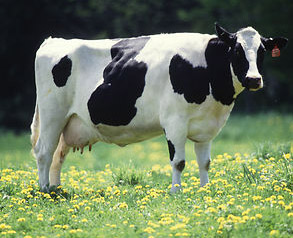Thursday, July 30, 2015 - Dairy producers in the U.S. typically breed their Holstein heifers and cows with semen from Holstein A.I. bulls on a ran dom basis without regard to pedigrees and the potential for inbreeding.
dom basis without regard to pedigrees and the potential for inbreeding.
Inbreeding percentage measures the percentage of locations where the two genes on the pairs of chromosomes are identical. An average Holstein heifer born during early 2015 has inbreeding of 6.5%. For example, a cow bred to her own sire results in the offspring having inbreeding of 25%, and a cow bred to her half-brother (they share the same sire) results in inbreeding of 12.5%.
Geneticists recommend that inbreeding shouldn’t surpass approximately 6.25% to avoid inbreeding depression for commercial livestock production. Inbreeding depression has a progressive negative effect - especially for the traits related to fertility, health, and longevity.
However, the annual increase of average inbreeding has accelerated over the past few years to about 0.2% per year (a doubling of the annual increase). This is probably due to the broad application of genomic selection in the Holstein breed has also dramatically shortened generation interval (the average age of parents when offspring are born), and this will accelerate the annual average increase of inbreeding. The inbreeding percentage in the Holstein breed has risen gradually from 4.7 % in 2001 to 6.5% in 2015.
Each of the other breeds of dairy cattle in the U.S. have also previously seen a rise in inbreeding numbers. Since the other breeds have a much smaller number of cows in its breed, the breeders have a keen awareness of the problem and seldom randomly use an A.I. bull on a female within the breed. In 2015 the inbreeding % for the other dairy breeds are; Jersey – 7.5, Guernsey – 7.4, Brown Swiss – 7.2 and Ayrshire - 6.5.
Mounting concern about the effects of inbreeding within the pure breeds has led some dairy producers to turn to crossbreeding systems which eliminates concern about inbreeding depression and instead provides a boost in the form of hybrid vigor, especially for traits related to fertility, health, and longevity.
Learn More Here